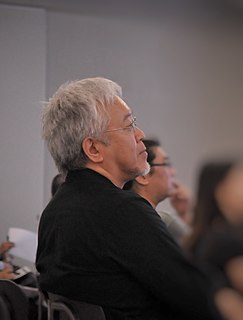A Quote by Howard Baker
If you don't like the question that's asked, answer some other question.
Related Quotes
To be a scientist you have to be willing to live with uncertainty for a long time. Research scientists begin with a question and they take a decade or two to find an answer. Then the answer they get may not even answer the question they thought it would. You have to have a supple enough mind to be open to the possibility that the answer sometimes precedes the question itself.
A dialogue is very important. It is a form of communication in which question and answer continue till a question is left without an answer. Thus the question is suspended between the two persons involved in this answer and question. It is like a bud with untouched blossoms . . . If the question is left totally untouched by thought, it then has its own answer because the questioner and answerer, as persons, have disappeared. This is a form of dialogue in which investigation reaches a certain point of intensity and depth, which then has a quality that thought can never reach.
It's the most annoying question and they just can't help asking you. You'll be asked it at family gatherings, weddings, and on first dates. And you'll ask yourself far too often. It's the question that has no good answer. It's the question that when people stop asking it, you'll feel even worse. - WHY ARE YOU SINGLE?
This is what rhyme does. In a couplet, the first rhyme is like a question to which the second rhyme is an answer. The first rhyme leaves something in the air, some unanswered business. In most quatrains, space is created between the rhyme that poses the question and the rhyme that gives the answer - it is like a pleasure deferred.












































